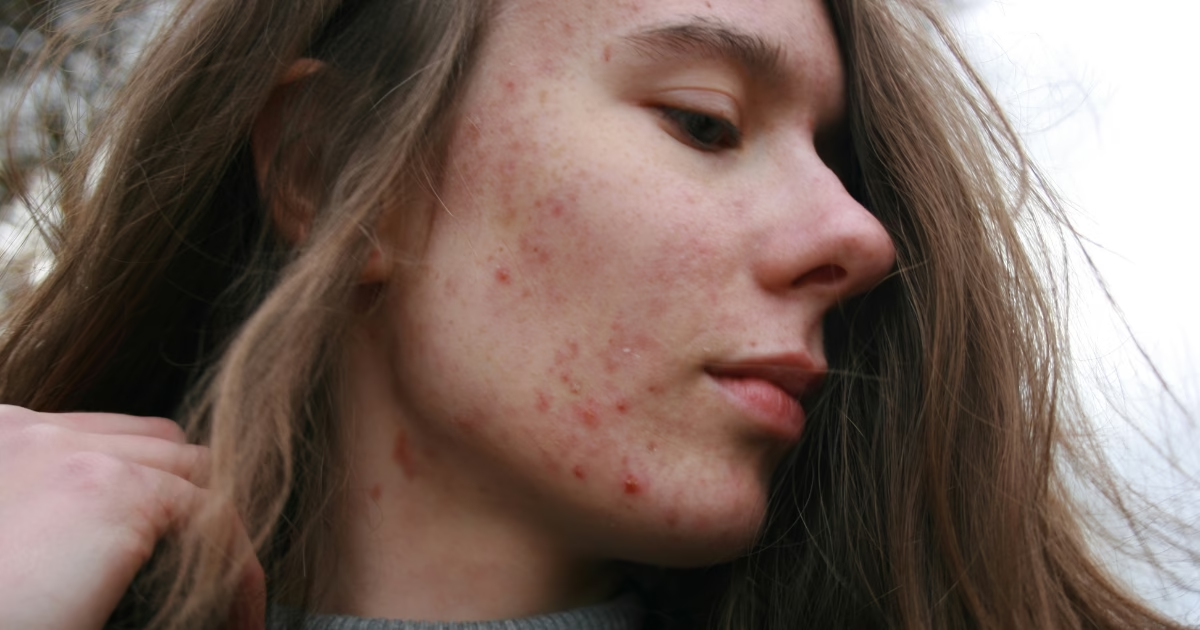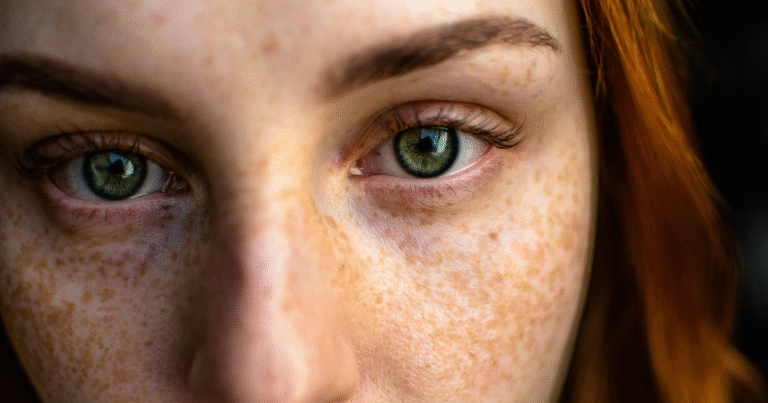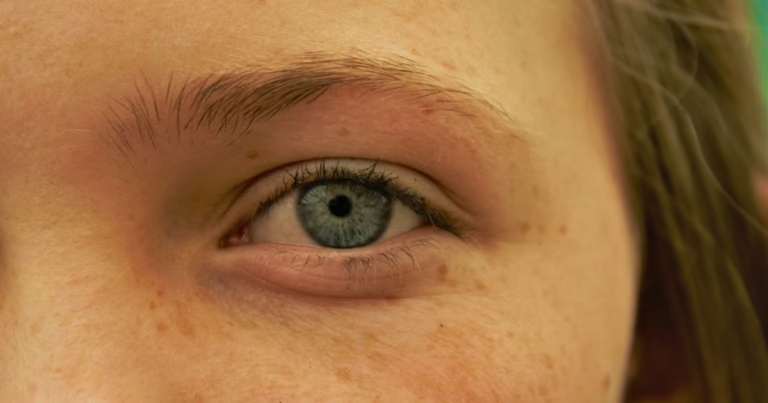Struggling with acne can feel like walking a tightrope. Too harsh, and your skin rebels with more breakouts. Too gentle, and nothing seems to work. I’ve been there—standing in skincare aisles, overwhelmed by promises and wondering which acnes gentle cleanser would finally give me the clear skin I craved.
The truth is, finding the right gentle cleanser for acne-prone skin isn’t just about picking any product labeled “acne-fighting.” It’s about understanding what your skin truly needs: effective cleansing without the irritation that can make breakouts worse. Whether you’re dealing with occasional pimples or persistent acne, choosing the right gentle approach can transform your skincare routine.
This comprehensive guide will walk you through everything you need to know about gentle cleansers for acne, from understanding why gentleness matters to finding the perfect product for your unique skin needs.
Table of Contents
Key Takeaways
- Gentle acnes cleansers can effectively treat breakouts without causing irritation or over-drying sensitive skin
- Look for non-comedogenic formulas with ingredients like salicylic acid, niacinamide, and ceramides for optimal results
- pH-balanced cleansers (around 5.5) help maintain your skin’s natural protective barrier while fighting acne
- Avoid harsh sulfates, alcohol, and artificial fragrances that can worsen acne and sensitivity
- Dermatologist-recommended brands like Cetaphil, CeraVe, and Neutrogena offer proven, gentle acne solutions
- Consistency with a gentle routine often works better than aggressive treatments for long-term acne management
What Makes a Cleanser “Gentle” for Acne-Prone Skin?
The Science Behind Gentle Acne Care
Here’s what many people don’t realize: aggressive cleansing can trigger more breakouts. When you strip your skin’s natural oils, it responds by producing more oil to compensate. This creates a vicious cycle where harsh treatments lead to increased acne.
A truly gentle acnes gentle cleanser works differently. It removes excess oil, dirt, and bacteria without disrupting your skin’s protective barrier1. Think of it like washing delicate fabric—you need the right detergent and technique to get it clean without damage.
Key Characteristics of Effective Gentle Cleansers
Non-comedogenic formulation ensures the cleanser won’t clog your pores. This is crucial because even gentle ingredients can cause breakouts if they block your follicles.
Low pH levels (around 5.5) match your skin’s natural acidity. This helps maintain the acid mantle, your skin’s first line of defense against bacteria and irritation.
Minimal ingredient lists reduce the risk of reactions. The best gentle cleansers focus on a few proven ingredients rather than kitchen-sink formulations4.
Why Choose Gentle Over Aggressive Acne Treatments?
The Problem with Harsh Acne Products
I learned this lesson the hard way. After years of using strong benzoyl peroxide washes that left my skin red and flaky, I discovered that gentleness doesn’t mean weakness. Dermatologists increasingly recommend gentle approaches, especially for sensitive acne-prone skin6.
Harsh cleansers can:
- Disrupt your skin barrier
- Increase inflammation
- Causes excessive dryness
- Trigger reactive oil production
- Makethe skin more sensitive to other treatments
Benefits of Gentle Acne Cleansing
Long-term skin health improves when you treat your skin with kindness. Gentle cleansers support your skin’s natural healing processes rather than fighting against them.
Better treatment tolerance means you can use other acne medications more effectively. When your skin isn’t already irritated from harsh cleansing, it handles retinoids and other treatments much better.
Reduced inflammation is key to preventing acne scars and post-inflammatory hyperpigmentation.
Who Should Use an Acnes Gentle Cleanser?
Ideal Candidates for Gentle Acne Care
Sensitive skin types who break out from traditional acne products benefit most from gentle formulations7. If you’ve ever experienced burning, stinging, or excessive dryness from acne treatments, gentle cleansers are likely your best bet.
People using prescription acne medications like retinoids or Accutane need gentle cleansers to avoid over-irritating already sensitized skin. Your dermatologist will often recommend switching to gentler products during these treatments.
Those with combination skin who deal with both oily and dry areas find that gentle cleansers provide balance without extremes.
When Gentle Cleansing Works Best
Mild to moderate acne responds excellently to gentle approaches9. Severe cystic acne might need stronger interventions, but even then, gentle cleansing forms the foundation of effective treatment.
Long-term maintenance of clear skin often relies on consistent, gentle care rather than sporadic aggressive treatments8.
How to Choose the Right Acnes Gentle Cleanser
Essential Ingredients to Look For
| Ingredient | Benefits | Best For |
|---|---|---|
| Salicylic Acid | Unclogs pores, gentle exfoliation | All acne types |
| Niacinamide | Reduces inflammation, controls oil | Sensitive, oily skin |
| Ceramides | Repairs skin barrier, maintains moisture | Dry, sensitive skin |
| Hyaluronic Acid | Hydrates without heaviness | All skin types |
| Green Tea Extract | Antioxidant, anti-inflammatory | Sensitive, irritated skin |
Ingredients to Avoid
Steer clear of these common irritants:
- Harsh sulfates (SLS, SLES) that strip natural oils
- Denatured alcohol that over-dries skin
- Artificial fragrances that can trigger reactions
- Physical scrubs with rough particles
- High concentrations of active ingredients (start low)
Top-Rated Gentle Acne Cleansers
Cetaphil Gentle Clear Clarifying Acne Cream Cleanser offers a perfect balance of salicylic acid with soothing aloe and white tea extract1. Clinical studies show 96% of users found it refreshing without over-drying.
Neutrogena Ultra Gentle Daily Cleanser with Pro-Vitamin B5 provides effective cleansing for sensitive, acne-prone skin without any harsh additives. It’s particularly good for those using other acne treatments.
CeraVe Foaming Facial Cleanser combines gentle cleansing with barrier-supporting ceramides and niacinamide. Dermatologists frequently recommend this affordable option.
When and How to Use Your Gentle Cleanser
Daily Routine Integration
Morning cleansing should be gentle and brief. Your skin hasn’t accumulated much dirt overnight, so a light cleanse prepares it for daytime treatments and sunscreen.
Evening cleansing can be more thorough, especially if you wear makeup or sunscreen. Consider double cleansing: start with an oil-based cleanser, then follow with your gentle acnes gentle cleanser.
Proper Application Technique
- Use lukewarm water—hot water can irritate sensitive skin.
- Apply with clean hands, not washcloths or brushes that can be too abrasive
- Gentle massage for 30-60 seconds maximum
- Rinse thoroughly to avoid residue that could clog pores
- Pat dry with a clean towel—never rub or scrub
Frequency Guidelines
Twice daily cleansing works for most people, but some with very sensitive skin do better with once daily (evening) cleansing and a simple water rinse in the morning7.
Listen to your skin—if it feels tight, dry, or irritated, reduce frequency or switch to an even gentler formula.
Where to Find Quality Gentle Acne Cleansers
Trusted Retailers and Brands
Dermatologist offices often carry medical-grade, gentle cleansers that aren’t available in regular stores. These products undergo more rigorous testing.
Pharmacies stock reliable drugstore options from brands like Cetaphil, CeraVe, and Neutrogena that dermatologists regularly recommend.
Online retailers offer the widest selection and customer reviews, but be cautious of counterfeit products from unverified sellers.
Budget-Friendly vs. Premium Options
You don’t need to spend a fortune on effective, gentle acne cleansing. Some of the best-rated acnes gentle cleansers are drugstore brands that cost under $15.
However, premium options might offer unique formulations or packaging that justify the higher price for some users.
Natural & Ayurvedic Approaches to Gentle Acne Cleansing
Natural Gentle Cleansers for Acne
Plant-based cleansing has gained significant attention in dermatological research for its effectiveness in treating acne without the harsh side effects of synthetic ingredients. Natural formulations often provide gentler alternatives that work with the skin’s natural processes rather than against them.
Proven Natural Ingredients
Tea Tree Oil (2-5% concentration) demonstrates antimicrobial properties comparable to benzoyl peroxide but with significantly less irritation. Clinical studies show it effectively reduces acne lesions while maintaining skin barrier integrity.
Honey and Oatmeal combinations provide natural antibacterial action and gentle exfoliation. Raw honey contains enzymes that naturally cleanse pores while oatmeal offers soothing anti-inflammatory properties.
Green Tea Extract delivers powerful antioxidants and anti-inflammatory compounds that help reduce acne-related redness and irritation without over-drying the skin.
Aloe Vera provides natural salicylic acid along with soothing gel that helps heal existing breakouts while preventing new ones.
Ayurvedic Perspective on Acne Cleansing
Understanding Skin According to Ayurveda
Dosha imbalances are considered the root cause of skin issues in Ayurvedic medicine. Acne typically relates to excess Pitta (heat/fire element) and Kapha (earth/water element) doshas, requiring cooling and detoxifying approaches.
Prakruti assessment (individual constitution) determines which natural cleansing methods work best for each person’s unique skin type and underlying imbalances.
Traditional Ayurvedic Cleansing Ingredients
| Ingredient | Sanskrit Name | Primary Action | Best For |
|---|---|---|---|
| Neem | Nimba | Antibacterial, purifying | Oily, acne-prone skin |
| Turmeric | Haridra | Anti-inflammatory, healing | All skin types |
| Rose Water | Gulab Jal | Cooling, balancing | Sensitive, irritated skin |
| Chickpea Flour | Besan | Gentle exfoliation, oil control | Combination skin |
| Sandalwood | Chandan | Cooling, soothing | Inflamed, hot skin |
Ayurvedic Cleansing Formulations
Ubtan preparation involves mixing multiple herbs into pastes or powders that gently cleanse while addressing underlying imbalances. These traditional formulations typically combine 3-5 ingredients based on individual needs.
Oil cleansing (Snehana) uses specific oils like sesame or coconut to dissolve impurities without stripping natural protective barriers. This method particularly benefits those with dry or combination acne-prone skin.
Natural vs. Conventional Gentle Cleansers
Advantages of Natural Approaches
Minimal processing means ingredients retain their natural molecular structure, often resulting in better skin compatibility and fewer allergic reactions.
Synergistic effects occur when multiple natural ingredients work together, providing benefits that individual synthetic compounds might not achieve.
Sustainable sourcing appeals to environmentally conscious consumers while supporting traditional farming practices.
Considerations for Natural Products
Concentration variability in natural ingredients can make results less predictable compared to standardized synthetic formulations.
Patch testing becomes especially important with natural products, as allergenic compounds from plants can trigger reactions in sensitive individuals.
Shorter shelf life requires proper storage and more frequent replacement compared to synthetic alternatives.
Evidence-Based Natural Formulations
Clinical Research Supporting Natural Approaches
Botanical extracts have shown measurable improvements in acne treatment studies. Research published in dermatological journals demonstrates that certain plant-based compounds can reduce inflammatory lesions by 40-60% over 12-week periods.
Traditional medicine validation through modern scientific methods has confirmed the effectiveness of many Ayurvedic ingredients previously used for centuries.
DIY vs. Commercial Natural Products
Home preparation allows complete control over ingredients but requires knowledge of proper concentrations and combinations to ensure safety and effectiveness.
Standardized natural products from reputable manufacturers offer consistency and safety testing while maintaining natural ingredient profiles.
Integration with Modern Skincare
Combining Natural and Clinical Approaches
Hybrid routines that incorporate both natural gentle cleansers and clinically proven treatments often provide optimal results for acne management.
Professional guidance from dermatologists familiar with integrative approaches can help determine the most effective combination of natural and conventional treatments.
Safety Considerations
Quality sourcing becomes crucial when selecting natural products, as contamination or adulteration can cause skin reactions or reduce effectiveness.
Gradual introduction of natural ingredients helps identify any sensitivities while allowing the skin to adjust to new formulations.
Regular monitoring ensures that natural approaches are providing desired results and not causing unexpected reactions.
Natural and Ayurvedic approaches to gentle acne cleansing offer time-tested alternatives that work harmoniously with skin’s natural functions. While these methods may require more patience than aggressive treatments, they often provide sustainable long-term results with minimal side effects for those seeking gentler acne management solutions.
Frequently Asked Questions
Q: Can gentle cleansers clear acne as well as harsh ones?
A: Yes, gentle cleansers can be just as effective and often more sustainable long-term. They reduce inflammation while cleaning pores, allowing your skin’s natural healing processes to work better. Many dermatologists prefer gentle approaches for maintaining clear skin.
Q: How long does it take to see results from a gentle acne cleanser?
A: Most people notice improvements in skin texture and reduced irritation within 1-2 weeks. Significant acne clearing typically takes 6-12 weeks of consistent use1. Remember, gentle doesn’t mean immediate—it means sustainable.
Q: Can I use a gentle cleanser if I have severe acne?
A: Absolutely. Even severe acne benefits from gentle cleansing as part of a comprehensive treatment plan8. Harsh cleansers can worsen inflammation and interfere with prescription treatments.
Q: Should I use an acnes gentle cleanser if I’m not breaking out?
A: If you’re prone to acne, using a gentle acne cleanser preventively can help maintain clear skin3. The gentle formulation won’t harm normal skin and can prevent future breakouts.
Q: What’s the difference between gentle cleansers and regular cleansers for acne?
A: Gentle acne cleansers are specifically formulated to be non-irritating while still addressing acne concerns. They typically have lower concentrations of active ingredients and include soothing components like aloe or ceramides.
Q: Can I use makeup with a gentle acne cleanser routine?
A: Yes, but choose non-comedogenic makeup and ensure thorough cleansing each evening. Some people find that gentle cleansing works better when they minimize heavy makeup use.
Conclusion
Finding the right acnes gentle cleanser isn’t about choosing the strongest product on the shelf—it’s about finding the perfect balance between effectiveness and kindness to your skin. The best gentle cleansers prove that you don’t have to choose between clear skin and comfortable skin.
Whether you opt for a drugstore favorite like Cetaphil or CeraVe, or explore specialized dermatologist-recommended options, the key is consistency and patience. Your skin will thank you for treating it gently while still addressing your acne concerns.
Ready to start your gentle acne journey? Begin with one of the dermatologist-recommended cleansers mentioned in this guide, and remember—sometimes the gentlest approach leads to the most dramatic results. What gentle cleanser will you try first?





